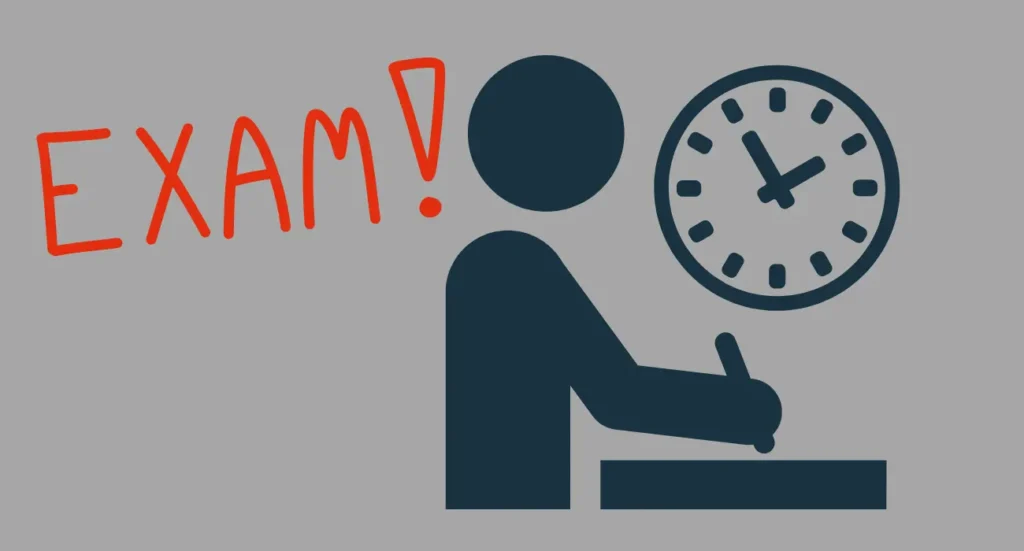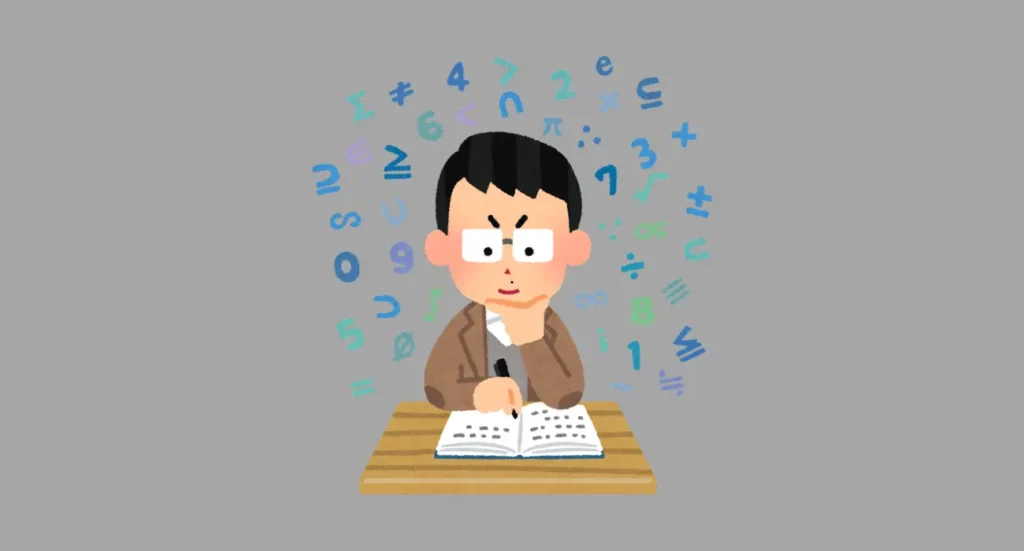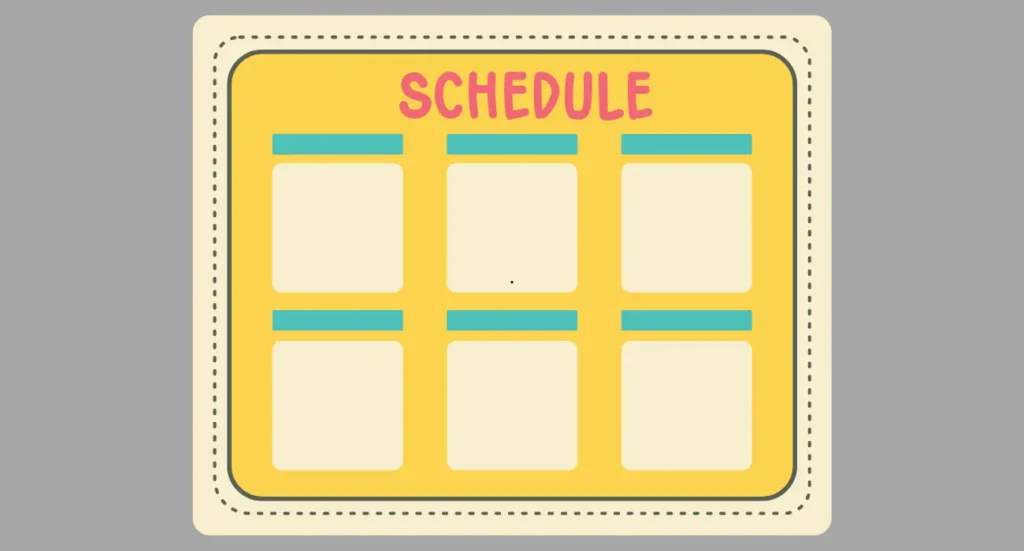Some students consistently score the highest marks in exams. What makes them special? The secret is in their smart study habits and techniques. These students, often referred to as toppers, use specific study tips and tricks to boost their learning speed and achieve top grades.
The good news is that you can use the secret tips of toppers.
In this post, we will discuss the 8 secret study tips of toppers you should know to become a topper like that student.
Table of Contents
Toggle8 Secret Tips of Toppers
Here are the 8 secret study tips of toppers you will be waiting for. Use these tips in your daily study routine to see the difference in your learning experience.
1. They Prepare Early for exams

One of the biggest secrets of the topper is that they start preparing for exams earlier instead of waiting until the last minute. They start their preparation well in advance. This helps them avoid the stress and rush that comes with cramming all the information before the exam. By studying a little bit every day, they have enough time to understand the concepts and revise them multiple times.
Why Early Preparation Helps
- Better Understanding: more time allows for a deeper understanding of the topics
- Reduces Stress: Consistent studies reduce stress and anxiety.
- Time for Revision: More time to review and practice.
2. They Don’t Cram
Trying to learn anything the night before an exam, is not the best way to study. Topper knows this very well. Instead of cramming, the focus is on understanding the information and ideas behind the material. They take their time to learn and remember information in a way that makes sense to them. This way, they can recall the information easily during exams.

Why Cramming Doesn’t Work
- Overload: Too much information in a short time is hard to retain.
- Poor Understanding: No time to understand, just memorize.
- Increased Stress: Cramming leads to panic and anxiety.
3. They are Consistent in Their Study
They study regularly, even if it’s just for a short period each day. This helps them stay on top of their coursework and prevents them from falling behind. Toppers never break their consistency in studies. By making studying a daily habit, they are always prepared and don’t need to panic when exams are nearby.
Benefits of Consistency
- Steady Progress: Regular study sessions lead to gradual improvement.
- Better Retention: Information becomes stronger over time.
- Less Stress: No last-minute panic.
.
4. They Use Tools
Toppers utilizes technology well, it will be YouTube, a website, or any other AI tool. They know how to make the best use of study tools. These tools can range from textbooks and notes to online resources and educational apps. They might use:
- Educational Apps: To practice quizzes and interactive exercises.
- Online Videos: To understand any type of difficult concepts.
- Study Groups: To discuss and learn with friends.
If you want to know about the best AI tools for students you can visit: 12 Best AI Tools for Students
Useful Tools for Studying
- Khan Academy: Offers free lessons on various subjects.
- Quizlet: Helps create flashcards and practice quizzes.
- YouTube: Channels like Crash Course provide engaging educational videos.
5. They are Confident
Confidence is an important trait of toppers. They believe in their ability to learn and succeed. This positive attitude helps them stay motivated and focused. When they encounter difficult topics, they don’t get discouraged. Instead, they take it as a challenge and work hard to overcome it. Their confidence gives them the strength to keep going, even when things get tough.
Building Confidence
- Positive Thinking: Encouraging oneself with positive affirmations.
- Setting Small Goals: Achieving small goals boosts confidence.
- Practice: The more they practice, the more confident they become.
6. They Concentrate Very Well

Toppers have excellent concentration skills. When they sit down to study, they give their full attention to the task at hand. They are also concentrative in class while listening to the teacher. They avoid distractions like social media, TV, and video games during their study time. They try to stay focused to understand and remember the material better. They also take short breaks to rest and recharge their minds, which helps them maintain their concentration and study for long hours.
Tips for Better Concentration
Here are some tips to help you concentrate better like toppers:
- Create a Quiet Study Space: create a distraction-free study environment in which no one disturbs you. It could be a library, alone in the room, or any other place.
- Take Breaks: Short breaks help you stay fresh and focused. You can use the Pomodoro technique which is the best time management technique.
7. They Utilize Previous Papers
One of the smart strategies that toppers use is to go through previous exam papers. By solving past papers, they get an idea of the type of questions that might appear in the exam. It also helps them practice their time management skills and identify any areas where they need more practice. By checking the previous papers, they know how to study for a test, are well-prepared, and know what to expect on the exam day.
How Previous Papers Help
- Familiarity: By checking previous papers you will understand the format and types of questions.
- Time Management: You will be able to manage time during exams.
- Identify Weaknesses: You will identify your struggling points that need some more time to solve.
8. Toppers Use a Study Schedule

Toppers often create a detailed study plan that outlines what subjects and topics they need to cover each day. This helps them stay on track and ensures that they don’t miss any important material. By sticking to their schedule, they make sure that they have enough time to review everything before the exam.
Why should you create a Study Schedule?
A study schedule helps you to manage your time during exams. You will know exactly what you need to study and when reducing the chance of procrastination and last-minute cramming.
A well-structured study schedule helps you to stay focused and productive. By breaking down your task into tasks, you will be able to achieve more in less time.
You reduce your exam stress by creating an effective study plan. You will feel more confident when going to exams.
Example of a Study Schedule
You can create a schedule at your convenience.
Here’s an example of how you might structure your study schedule for a week:
Monday
- 4:00 – 5:00 PM: Math (Algebra)
- 5:00 – 5:15 PM: Break
- 5:15 – 6:15 PM: Science (Biology)
- 6:15 – 6:30 PM: Break
- 6:30 – 7:30 PM: History (World War II)
Tuesday
- 4:00 – 5:00 PM: English (Essay Writing)
- 5:00 – 5:15 PM: Break
- 5:15 – 6:15 PM: Geography (Maps)
- 6:15 – 6:30 PM: Break
- 6:30 – 7:30 PM: Math (Geometry)
Wednesday
- 4:00 – 5:00 PM: Science (Physics)
- 5:00 – 5:15 PM: Break
- 5:15 – 6:15 PM: English (Grammar)
- 6:15 – 6:30 PM: Break
- 6:30 – 7:30 PM: History (Ancient Civilizations)
Thursday
- 4:00 – 5:00 PM: Math (Trigonometry)
- 5:00 – 5:15 PM: Break
- 5:15 – 6:15 PM: Science (Chemistry)
- 6:15 – 6:30 PM: Break
- 6:30 – 7:30 PM: Geography (Climate)
Friday
- 4:00 – 5:00 PM: English (Literature)
- 5:00 – 5:15 PM: Break
- 5:15 – 6:15 PM: Math (Calculus)
- 6:15 – 6:30 PM: Break
- 6:30 – 7:30 PM: History (Medieval Times)
Saturday
- 9:00 – 10:00 AM: Review Science (All Topics Covered)
- 10:00 – 10:15 AM: Break
- 10:15 – 11:15 AM: Review Math (All Topics Covered)
- 11:15 – 11:30 AM: Break
- 11:30 – 12:30 PM: Review English (All Topics Covered)
Sunday
- Free Day or Light Review
- Use this day to relax or go over any topics you feel less confident about.
- Final Thought: 7 Secret tips for toppers
Final Thoughts
Scoring the highest in exams is not about studying hard, it’s about using mind-blowing study tips. We have learned the 7 secret tips of topper; you can use these tips to study faster and to get good marks in exams.
Start your preparation early, avoid cramming, stay consistent with your studies, use tools, be confident, concentrate well, utilize previous papers, and follow a study schedule. With these strategies, you will learn how to become a topper and transform yourself from an average to a topper student.
FAQs
How do toppers maintain their concentration while studying?
Toppers create a distraction-free study environment, take short breaks, and utilize techniques like the Pomodoro method to increase concentration.
Why do toppers solve previous exam papers?
Solving past papers helps toppers understand question formats, manage time effectively during exams, and identify areas needing more practice.
What are the benefits of using a study schedule?
A study schedule helps students manage time efficiently, stay focused, reduce exam stress, and ensure comprehensive coverage of study material.
How can students create their study schedules?
Students can allocate specific times for each subject, including short breaks, and prioritize topics based on their difficulty level and exam date.
What are some examples of study tools and resources to use?
Examples include educational apps like Khan Academy, study aids like Quizlet for creating flashcards, and informative YouTube channels such as Crash Course.










